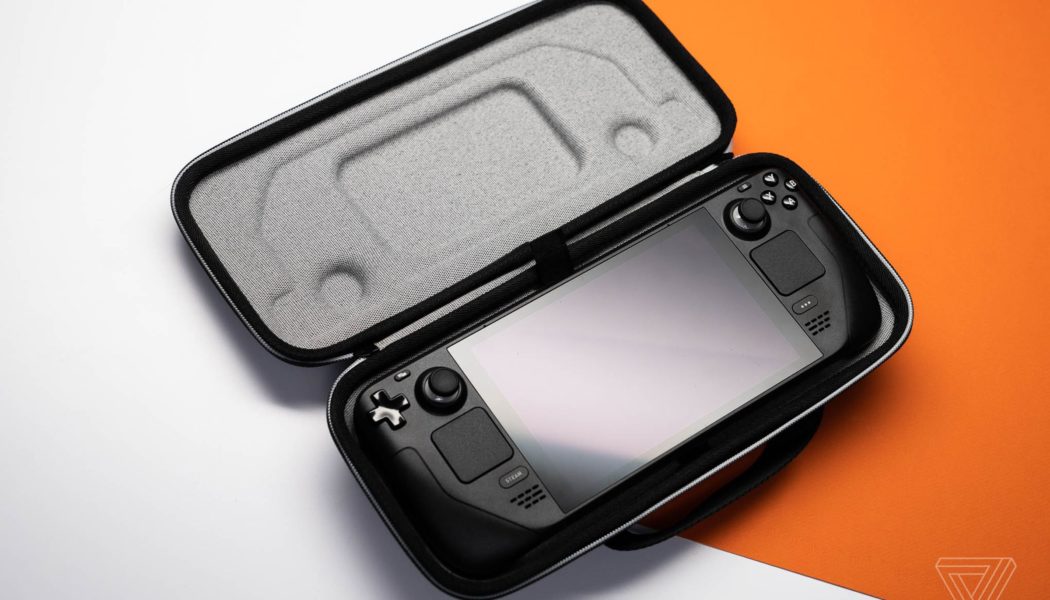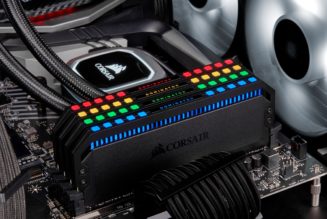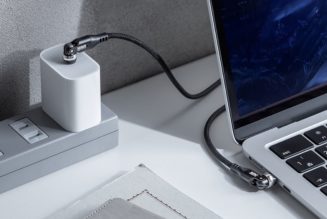Pay less attention to the Wi-Fi — and more attention to Valve sneaking through the FCC.
Share this story
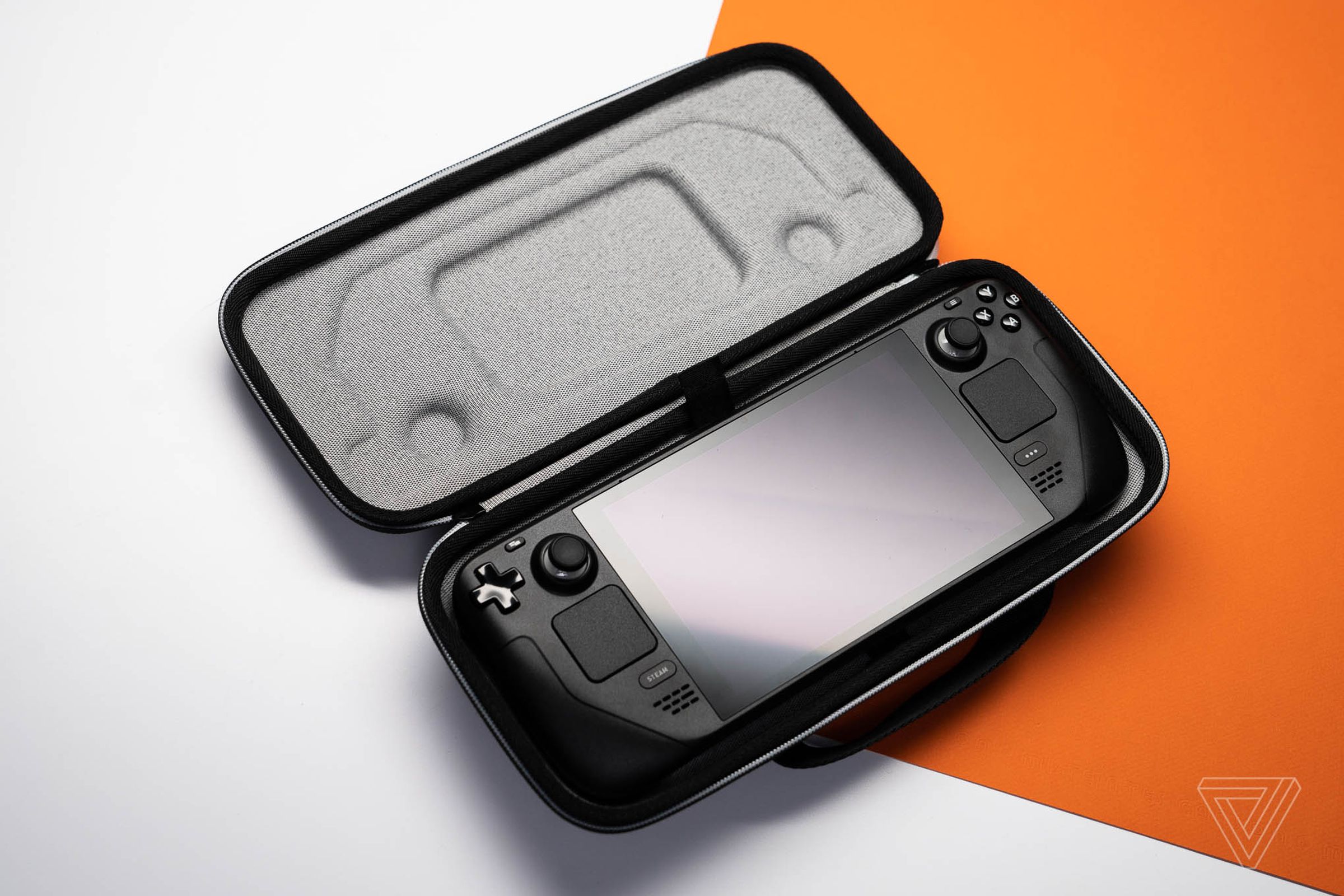
Think we’re not getting a new Steam Deck just because Valve isn’t ready to upgrade its performance? Think again: Valve already put a new Steam Deck through the FCC’s certification process on August 13th, agency documents reveal.



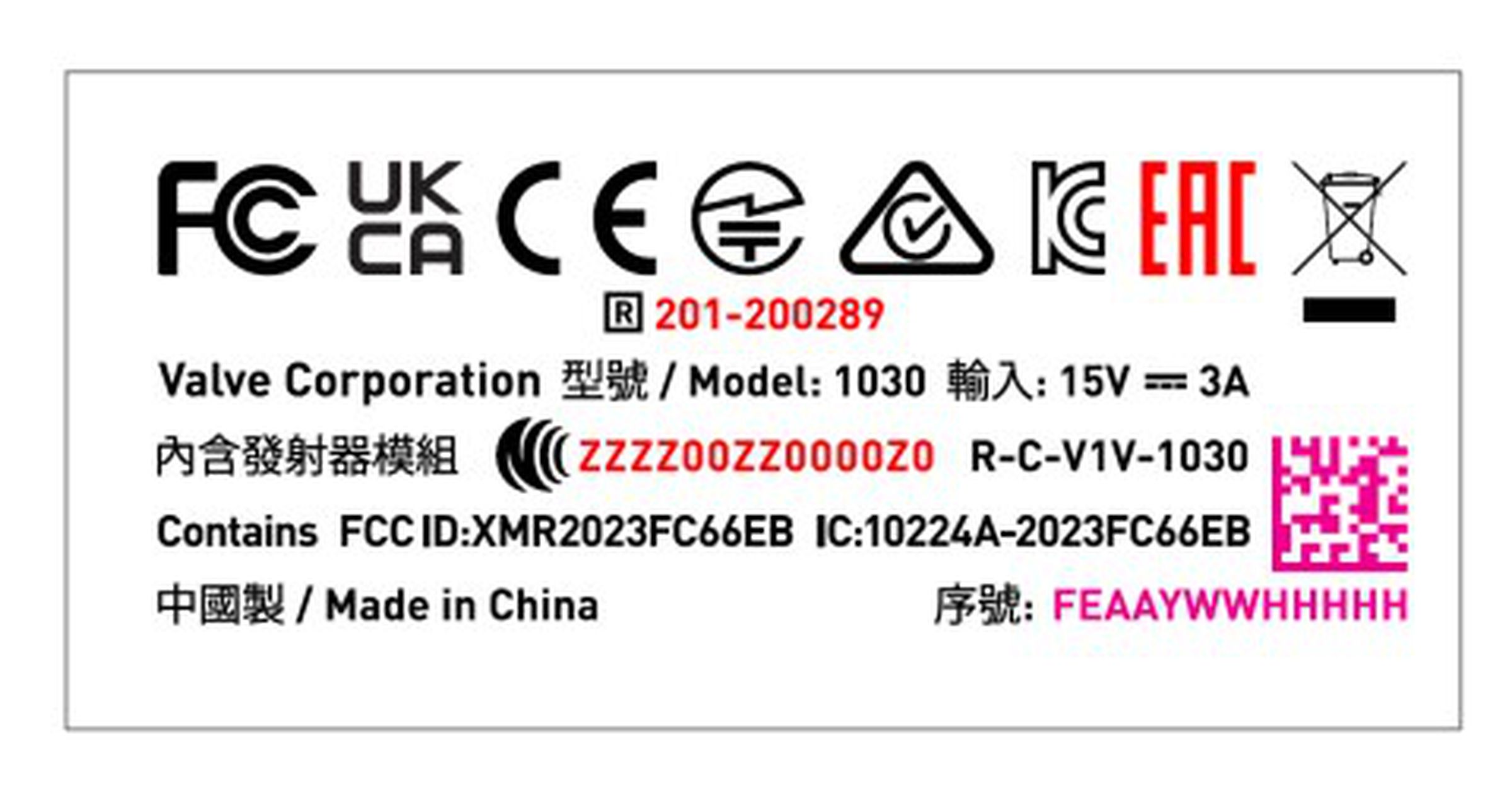
The mystery “Valve 1030” that went through South Korea’s National Radio Research Agency has now been definitively identified as a Steam Deck, and it’s our first proof the hardware’s potentially close enough to release to justify showing it to regulators.
Why are we only learning about this now? Because just like with the original Steam Deck, Valve used its Wi-Fi and Bluetooth chip vendor to sneak it through. Valve sleuths Brad Lynch and @TVKilledMi discovered the new Deck was filed under a company called Quectel, not Valve.
Quectel filed for a Class II Permission Change to simply allow its certified Wi-Fi 6E and Bluetooth chip, the FC66E, to retroactively work in a new Steam Deck, too.

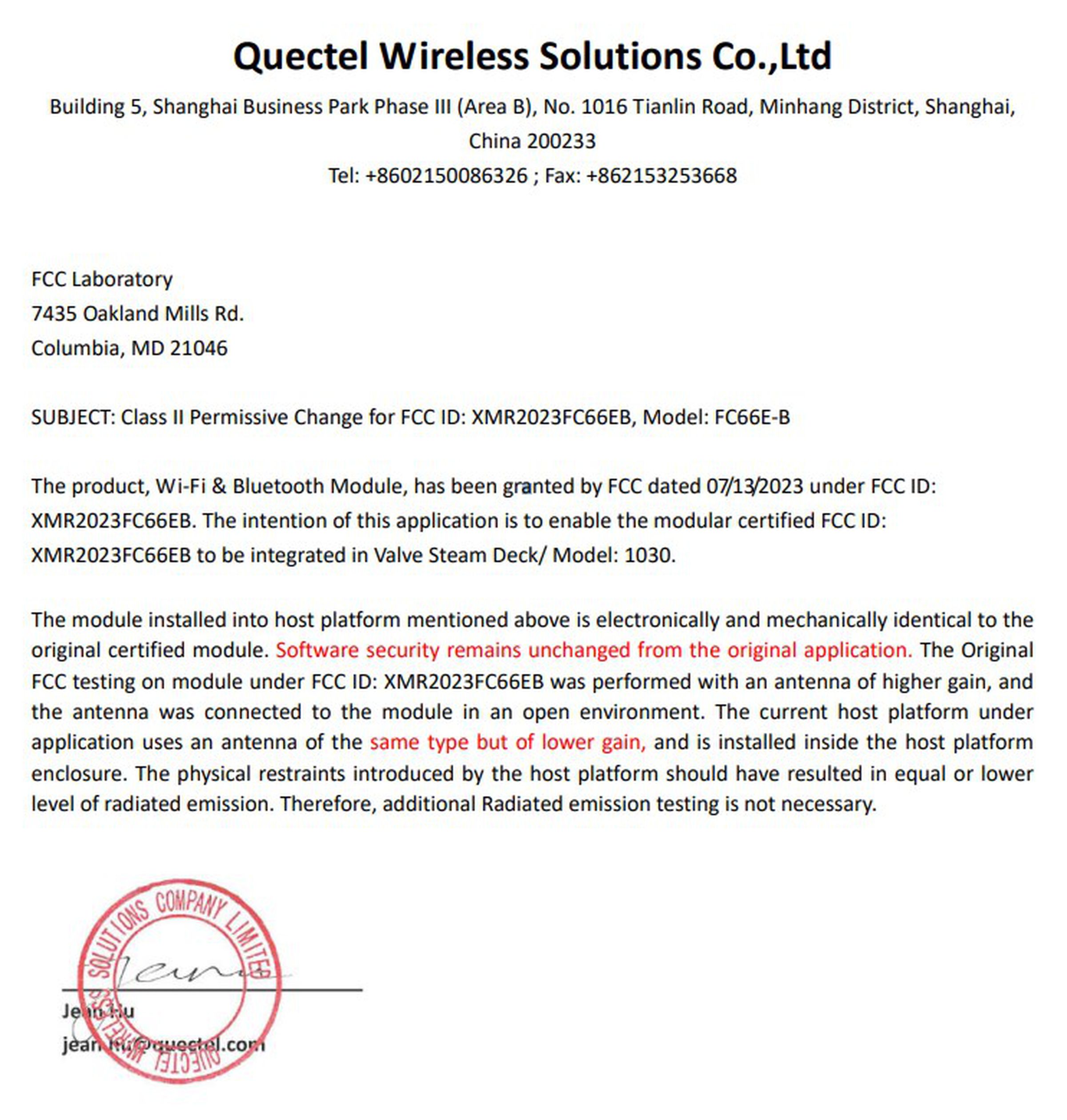
It’s a clever technique — as you can see in the document above, Valve’s supplier is able to argue that the new Steam Deck has a weaker antenna, so its radio emissions don’t need to be retested.
Does this mean that the new Steam Deck is a minor refresh that only adds Wi-Fi 6E? I very much doubt that. In fact, Wi-Fi 6E might not be a supported new feature at all — South Korea only certified the device for 5GHz Wi-Fi, not 6GHz Wi-Fi, despite the country approving unlicensed use of the 6GHz band back in 2020.
Valve can hide whatever new features it likes behind the Wi-Fi chip certification because these agencies only tend to regulate radio emissions, not other specs. I have a few ideas for what Valve should include next.
I have to admit it could simply be an existing Steam Deck with a refreshed radio chip if its previous supplier, Realtek, ran out. But Valve wouldn’t have to cook up a new “1030” model for that, would it?
Lynch continues to find code snippets that suggest a wireless PC VR headset is also on the way — I wouldn’t be surprised if Valve announces both items simultaneously.
